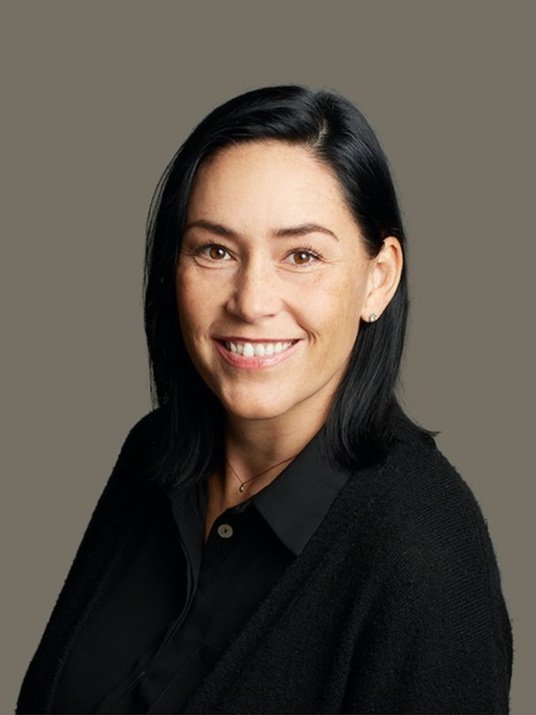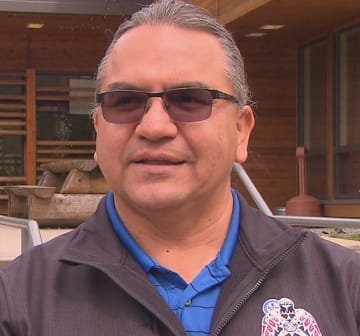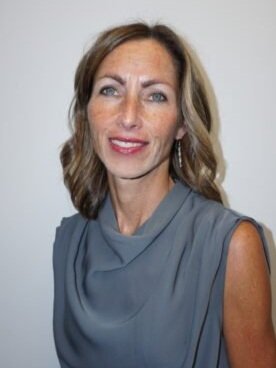
Indigenous Healthcare & Youth
June 4, 2024 at 9:00AM PST
Downtown Vancouver and Live Webinar
Indigenous Healthcare & Youth
June 4, 2024
Overview
The state of Indigenous healthcare in Canada has been a subject of ongoing concern and advocacy for improvement. Indigenous peoples in Canada often face significant disparities in healthcare access, quality, and outcomes compared to non-Indigenous populations. These disparities are rooted in historical and ongoing systemic factors, including colonization, intergenerational trauma, socio-economic inequities, and discrimination.
In the same vein, Indigenous child and family services in Canada has been a matter of significant concern and attention due to longstanding issues related to government practices, colonial policies, and systemic injustice. Indigenous children and families continue to be overrepresented in the child welfare system compared to non-Indigenous populations. But as Indigenous nations work to reclaim jurisdiction over child and family services in their communities, change is coming.
Join us as we engage in thought-provoking discussions, hear from esteemed speakers, and exchange innovative ideas to address the systemic challenges facing Indigenous peoples in accessing quality healthcare and navigating child and family services. From bridging cultural gaps in healthcare to addressing challenges in development child and family services laws, this conference is a platform for meaningful dialogue and actionable solutions.
Key Areas Addressed:
Perspectives on the creation and implementation of child and family services laws from Nations with experience
Experience of children and youth in the foster care system
The role of traditional Indigenous practices and holistic concepts of health in the healthcare system
Legislative approaches on Indigenous healthcare
Who Should Attend:
Indigenous leaders, officials, councillors, elders, negotiators, administrators, and advisors
Family law practitioners, lawyers, mediators and arbitrators
Healthcare practitioners and providers
Child services workers
Federal, provincial, territorial and municipal government officials and policy advisors
Advocacy groups and not-for-profits working to support Indigenous health, children and families
Agenda
9:00 - Welcome by PBLI
9:05 - Chair’s Welcome and Introduction
Hannah McDonald
Ratcliff LLP
Natalia Sudeyko
Ratcliff LLP
9:10 - Indigenous Child & Family Services: Jurisdiction Updates and Implementation Experiences
Moderator: Hannah McDonald
Ratcliff LLP
Wenecwtsin (Big Voice that Speaks the Truth)/Wayne M. Christian
Former Chief of Splatsin, Secwepemcul’ecw
Willie Charlie
Sts’ailes First Nation
Edward Johnson
Huu-ay-aht First Nations
Perspectives related to recently enacted child and family services laws
Insights into coordination agreements
Working towards exercising greater control over child and family services in other ways
10:20 - Questions and Discussion
10:30 - Morning Adjournment
10:45 - Indigenous Youth in Care
Moderator: Natalia Sudeyko
Ratcliff LLP
Youth with Lived Experience - To be announced
Youth in/formerly in care speaking about their experiences and what helped or hindered them in maintaining their connections to their cultures and communities
Examining the legal rights and protections afforded to Indigenous youth in care
Investigating legal frameworks surrounding guardianship and decision-making authority for Indigenous youth in care
11:55 - Questions and Discussion
12:05 - Lunch Adjournment
1:05 - Revitalization of Indigenous Birthing Practices
Ellen Blais
Executive Director, National Council of Indigenous Midwives
1:55 - Questions and Discussion
2:05 - Afternoon Adjournment
2:20 - Beyond Western Paradigms: Embracing Holistic Perspectives and Addressing Social Determinants of Health
Kathy Waddell
Consultant, Kaniikaniit Consulting
Public policy and racism as barriers - reconciliACTION
Understanding holistic practices and the continuum of care
Two-eyed seeing and traditional practices
Holistic health and the Indigenous social determinants of health
Health disparities for Indigenous Peoples
3:30 - Questions and Discussion
3:40 - Current Approaches and Legislative Initiatives on Indigenous Healthcare
Clare Mochrie
Director, Intergovernmental, First Nations Health Authority
Inequity and gaps in health outcomes between Indigenous people and the general population
10-Year Strategy on the Social Determinants of Health implementation plan
4:30 - Questions and Discussion
4:40 - Chairs’ Closing Remarks
4:45 - Forum Concludes
Meet the Co-Chairs
-
Associate, Ratcliff LLP, North Vancouver, BC
Hannah provides legal advice to First Nations in B.C. and the Yukon on a variety of interrelated and complex matters. Her practice encompasses a diverse range of areas, including treaty negotiations and implementation, inter-governmental negotiations, and First Nations governance and jurisdiction.
With a solid foundation in Aboriginal rights and title, Indian Act matters, and governance issues, Hannah is dedicated to supporting Indigenous reconciliation and self-determination in areas such as Indigenous child and family services and Aboriginal title.
In her corporate and commercial law practice, Hannah advises on economic development and Indigenous business initiatives, including commercial transactions, development projects, and sales and leasing agreements. Furthermore, she works alongside clients on environmental stewardship and regulatory compliance matters, developing sustainable practices that integrate Indigenous values.
As a member of the Esketemc First Nation, Hannah brings a unique perspective to her work, prioritizing equity and prosperity for all Indigenous communities.
-
Associate, Ratcliff LLP, North Vancouver, BC
Natalia is a talented legal advisor with a focus on Aboriginal law and litigation. She has experience on a wide range of files, including assisting First Nations with significant Aboriginal rights and title claims. In addition, Natalia works with clients in the areas of: child welfare; drafting and implementation of legislation; treaty implementation; specific claims; justice system implementation. Natalia has appeared before the courts in British Columbia, the Federal Courts, and administrative tribunals such as the National Energy Board. Natalia joined the firm as an articling student in 2017. In her spare time, Natalia can usually be found running, playing music, and hanging out with her cat.
Meet the Faculty
-
Executive Director, National Council of Indigenous Midwives, Toronto, ON
-
Sts’ailes First Nation, Agassiz, BC
Willie Charlie is an active member of the First Nations Health Council, Aboriginal Health Steering Committee, Aboriginal Advisory Committee for RCMP, the BC Hydro Integrated Resource Planning Committee and the Cultural Committee for the University of the Fraser Valley. Previously, Charlie was elected to Sts’ailes Council for 12 years and elected as chief for six years. He has also served as vice president for the Union of BC Indian Chiefs.
-
Former Chief of Splatsin, Secwepemcul’ecw
Wenecwtsin is of Secwépemc and Syilx Okanagan ancestry and remains rooted in the culture, principles, and laws of his Nation. His name Wenecwtsin comes from his great grandfather. His family and teachings continue to be the touchstone of his work and underpin more than 30 years of leadership. He is a proud father of seven children and twenty-seven grandchildren, who provide him with the strength and determination to continue working to ensure a better future for our next generations.
Wenecwtsin served seven consecutive terms as Kúkpi7 (Chief) of the Splatsin First Nation. In total 26 years as Kukpi7 of Splatsin, he also served 12 years as one of the Tribal Chiefs of the Secwepemc Nation. He was first elected Chief in 1979. One of his significant achievements as Chief of Splatsin was leading the first community-controlled child welfare legislation in Canada. He also served for 20 years in addictions treatment and community health. He has a leadership philosophy built on inclusivity, respect, transparency and accountability. He understands that leadership requires listening to concerns, understanding the issues, gathering feedback and implementing practical solutions. Open and transparent communication is key.
Wenecwtsin believes leadership begins by building strong communities and this starts with our young people. He has always played an active role in the growth and development of youth through activities and sports. His experience working with youth includes coaching minor hockey for 16 years as head coach and assistant.
-
Councillor, Huu-ay-aht First Nations, Port Alberni, BC
EDWARD R. JOHNSON, traditional name ƛicitatḥ is in his second term as a member Executive Council for Huu-ay-aht First Nations, a modern treaty nation located on the west coast of Vancouver Island. Edward has served his Nation most of his life. He worked for Huu-ay-aht in watershed restoration, forestry, on the West Coast Trail, public works, carving projects, program manager and assistant to the executive director, and most recently with youth, culture, and wellness. This experience has given him an understanding of the importance of being Huu-ay-aht and extensive understanding about the government structure and day-to-day operations. In his first term, Edward held the Citizenship and Citizen Development portfolio, as well as the Health and Education, Language, and Culture portfolios. His work experience with the Nation, particularly his role working on culture and wellness, gave him and understanding of the power of culture and the role it can play in healing the intergenerational traumas that many Huu-ay-aht citizens face today. He believes the Nation’s sacred principles of ʔiisaak (Utmost Respect), ʔuuʔałuk (Taking Care of), and Hišuk ma c̕awak (Everything is One) are woven into the work that is being done to help communities deal with addiction and other related issues.
-
Director, Intergovernmental, First Nations Health Authority, North Vancouver, BC
Clare is an experienced leader, planner and project manager. Currently serving as Director, Intergovernmental with the First Nations Health Authority, Clare has over 20 years of experience working with communities, First Nations and all levels of government to devise innovative solutions around challenges related to health, housing, land use and real estate, economic development, accessibility and sustainability. Prior to joining the FNHA in 2021, Clare ran a Vancouver-based consultancy for over 15 years. She worked with the Province, health authorities and communities throughout BC on various planning processes, policy initiatives, research projects and engagements. As director of a multinational corporation, Clare led stakeholder and government relations for a world scale climate change project. She also facilitated strategic planning processes with various non-profit boards and member organizations in the IT sector. Clare holds a Master of Arts degree in Community and Regional Planning from the University of British Columbia, where she is currently an adjunct professor. She also holds a Bachelor of Commerce from McGill University. The areas of women’s wellness, gender and racial equity are ones that Clare is particularly passionate about and since 2008, she has volunteered with organizations committed to gender-based programming, anti-violence and advocacy. She is also a proud mother of two amazing young boys.Her passion lies in working with people on complex and challenging issues – and devising innovative solutions that result in real improvements. Clare has a Bachelor of Commerce from McGill University and a Masters of Planning from the University of British Columbia.
-
Senior Consultant & Owner, Kaniikaniit Consulting, Port Alberni, BC
Kathy Waddell has been working to support First Nations people and Indigenous governments and organizations for more than 17 years. Kathy lives on the unceded Tseshaht and Hupačasath territories. She is a Métis consultant and through her work has had the privilege to learn from Nuu-chah-nulth Elders and practice the teachings that have been shared with her. Kathy holds a master’s in interdisciplinary studies enjoys looking at the world through that interdisciplinary lens. Kathy believes in building our Indigenous community’s capacity, supporting self-determination, and has walked alongside many individuals and organizations as they realize their goals.
Registration Form
Program:
Indigenous Healthcare & Youth
Date:
June 4, 2024
Location:
UBC Robson Square (800 Robson Street - Classroom level), Vancouver, BC
Registration:
The registration fee is $890.00 plus GST of $44.50 totalling $934.50 for webinar and in-person attendance. Registration fee covers your attendance at the program and electronic materials. In-person attendance includes a catered lunch and refreshments throughout the day.
Early Bird Discount:
Register by May 7th, 2024 and receive a $100 discount on the registration fee ($790.00 plus GST). Discounts cannot be combined.
Group Discount:
Register four persons from the same organization at the same time and you are entitled to a complimentary fifth registration. Discounts cannot be combined.
If you would like to register a group, please fill out this form and email it to registrations@pbli.com:
Payment:
You may pay by VISA, Mastercard or cheque. Cheques should be made payable to the Pacific Business & Law Institute and mailed to Unit 2-2246 Spruce Street, Vancouver, BC V6H 2P3. Please do not send cheques via courier with signature required.
When and Where:
Check-in begins at 8:30 a.m. The program starts at 9:00 a.m. (PST). UBC Robson Square is located at 800 Robson Street in Vancouver, BC, and our event will take place on the classroom level. Please visit https://robsonsquare.ubc.ca/find-us/ for directions.
Materials:
The faculty will prepare papers and/or other materials explaining many of the points raised during this program. Materials will be distributed electronically. Please contact us at registrations@pbli.com if you are unable to attend the program and wish to purchase a set of materials.
Cancellations/Transfers:
Refunds will be given for cancellations (less a $60.00 administration fee) if notice is received in writing five full business days prior to the program (May 28, 2024). After that time we are unable to refund registration fees. Substitutions will be permitted. We reserve the right to cancel, change or revise the date, faculty, content, availability of webinar or venue and transfer in-person registration to webinar registration for this event.
To register by phone:
Telephone us: 604-730-2500
Your Privacy:
We will keep all information that you provide to us in strict confidence, other than to prepare a delegate list containing your name, title, firm and city for our faculty and the program delegates. We do not share our mailing lists with any non-affiliated organization.
Course Accreditation:
Attendance at this course can be listed for up to 6.25 hours of continuing professional development credits with the Law Society of BC. For practitioners in other jurisdictions, please check your governing body’s CPD requirements.
If you would like to register a group, please fill out this form (DOWNLOAD FORM) and email it to registrations@pbli.com; for individual registration, please continue with form below.







